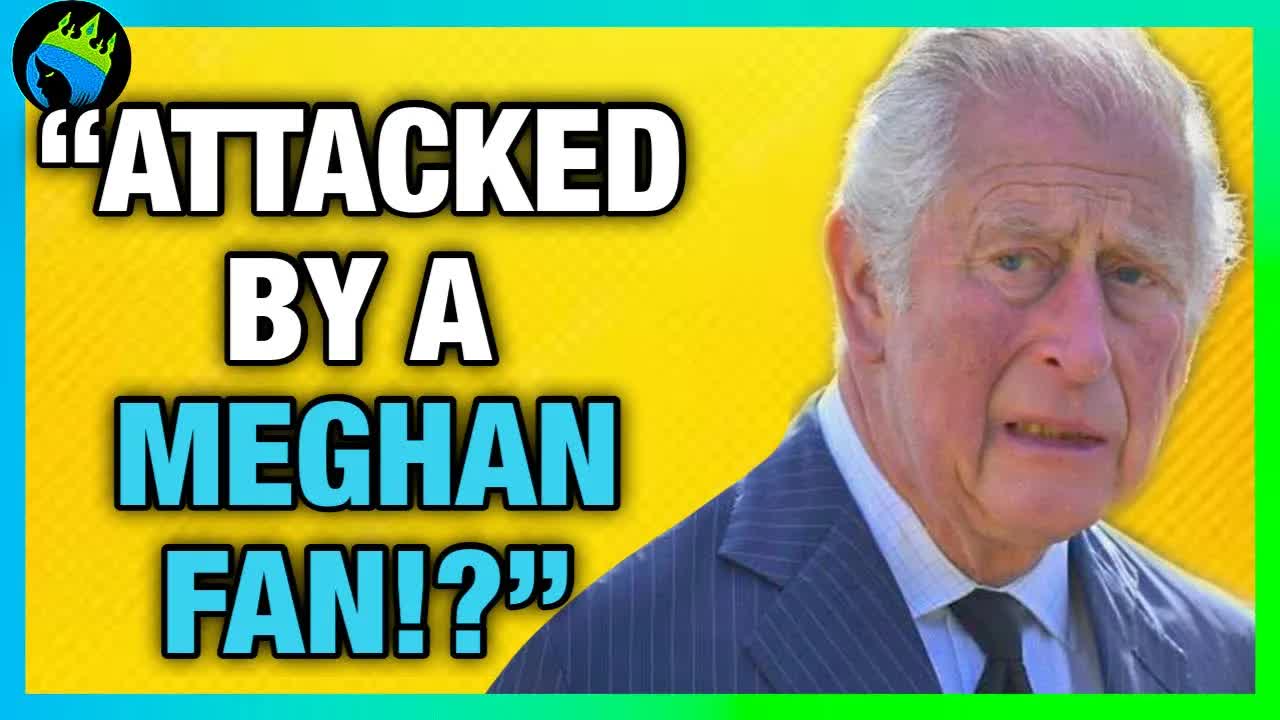In a shocking incident during King Charles III’s Australian tour, a supporter of Meghan Markle made headlines after verbally attacking the monarch.
The uproar unfolded shortly after the King delivered a speech at the Australian Parliament, with Indigenous senator Lydia Thorpe seizing the moment to voice her grievances.
The confrontation has since gone viral, igniting discussions about respect and representation within the political landscape.
Lydia Thorpe, known for her outspoken views, confronted King Charles, declaring, “Our bones, our skulls, our babies, our people, you destroyed our land.”
Her passionate outburst continued as she demanded a treaty, asserting, “This is not your land.”
The moment was captured on video and shared widely, prompting mixed reactions from the public and royal observers alike.
As King Charles and Queen Camilla maintained their composure amidst the disruption, many praised their dignified response.
Their ability to handle the situation with grace only highlighted the contrast between their behavior and Thorpe’s aggressive approach.
Social media users quickly reacted, with some expressing outrage while others seemed to cheer on Thorpe’s actions.
On Twitter, accounts like @BarkJack underscore shared insights, pointing out that Lydia Thorpe’s father is English.
This raised questions about her motivations, with some arguing that abolishing the monarchy wouldn’t significantly impact the daily lives of Australians.
As a ceremonial figurehead, King Charles holds no real power over the nation, making Thorpe’s outburst seem even more perplexing to critics.
Adding fuel to the fire, Thorpe’s father, Roy Illingworth, publicly criticized her actions, labeling her as “a very racist person against white people.”
He expressed disappointment in her refusal to acknowledge her English and Irish heritage, which he believes undermines her claims and actions.
This familial rift has sparked further debate about identity and representation in Australian politics.
Public figures like Marty Fields voiced their discontent, questioning who gave Thorpe the authority to represent Aboriginal Australians in such a confrontational manner.
Fields emphasized the need for respect towards the monarchy, stating, “Have some bloody respect.”
His comments echoed a broader sentiment among those who felt that Thorpe’s actions were inappropriate and damaging to the reputation of Indigenous Australians.
Former senator Nova Peris also weighed in, clarifying that Thorpe’s outburst does not reflect the views of all Aboriginal Australians.
Peris expressed her disappointment, noting that Thorpe had previously affirmed her allegiance to the crown during her swearing-in ceremony.
This contradiction raises important questions about political accountability and the responsibilities of elected officials.
Peris urged for a distinction between individual actions and the broader community’s values, emphasizing that most Aboriginal Australians would not engage in such confrontational behavior.
Her call for mutual respect and dignity resonated with many who felt that Thorpe’s actions misrepresented the sentiments of the Indigenous community.
Senator Barbette condemned Thorpe’s behavior as disgraceful, particularly given the King’s ongoing health struggles.
She argued that it was Thorpe who should apologize, not the King or the Australian people.
This sentiment was echoed by numerous commentators who believe that Thorpe’s conduct tarnished the dignity of the Parliament and the nation as a whole.
Critics have characterized Thorpe’s actions as performative politics, suggesting that if she had genuine concerns, she could address them through her role as a senator.
Observers noted that her behavior resembled a tantrum rather than a constructive political statement, drawing parallels with other controversial figures in the media landscape.
As the dust settles on this dramatic encounter, the implications for both Thorpe and the monarchy remain to be seen.
The incident has certainly sparked a national conversation about respect, representation, and the role of public figures in shaping discourse around sensitive issues.
In light of these developments, many are left wondering how this confrontation will affect the broader relationship between the Crown and Indigenous Australians, as well as the future of political discourse in Australia.
Related Stories

